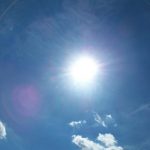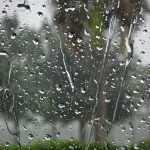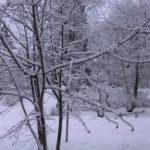Ładna pogoda! Posted by Katarzyna on Jul 25, 2010 in Vocabulary
 I’m a summer baby. My birthday is in July, and I like it hot. The recent weather here in the states has been just that, and then some. In fact, we had two days of heat advisories that warned people to avoid prolonged periods of activity outdoors. With all this talk of heat and the storms that have followed, it made this topic an easy one to write about. How do you describe the weather?
I’m a summer baby. My birthday is in July, and I like it hot. The recent weather here in the states has been just that, and then some. In fact, we had two days of heat advisories that warned people to avoid prolonged periods of activity outdoors. With all this talk of heat and the storms that have followed, it made this topic an easy one to write about. How do you describe the weather?
Now, if you live in the northern hemisphere, chances are you are enjoying lato (summer). In the summer, most of the time, pogoda jest słoneczna (the weather is sunny). And if you have had weather like the midwest of the Unites States has had the last week, it is ciepło (warm). Not just warm, it’s downright gorąco (hot)! Recently, many states have seen termometr (thermometer) readings in the ninety degree range, which on the metric system converts to readings in the 33-37 stopni (degrees) range in Celsius.
 With weather, however, you have to take the good with the bad. Some days, the bright słońce (sun) is hidden by chmury (clouds). Before long, those clouds fill to capacity and the deszcz (rain) must fall. To describe the weather is rainy, you can simply say, “Pogoda deszczowa.” Just something to note, the adjective will always decline to describe pogoda in this post, which is feminine. So you’ll be using the -a endings on the adjectives. So cloudy would by pochmurna. If you were to say the weather is dry, it would be sucha. However, most people would describe the air as dry, not the weather. So the statement would be, “Powietrze jest suche.”
With weather, however, you have to take the good with the bad. Some days, the bright słońce (sun) is hidden by chmury (clouds). Before long, those clouds fill to capacity and the deszcz (rain) must fall. To describe the weather is rainy, you can simply say, “Pogoda deszczowa.” Just something to note, the adjective will always decline to describe pogoda in this post, which is feminine. So you’ll be using the -a endings on the adjectives. So cloudy would by pochmurna. If you were to say the weather is dry, it would be sucha. However, most people would describe the air as dry, not the weather. So the statement would be, “Powietrze jest suche.”
 Not being fond of zima (winter), I would prefer to avoid these adjectives entirely. However, that would not be much of a lesson, now would it? Soon the jesień (autumn) will be upon us. Chłódno jest (It’s cool) will become the more commonplace weather statement. And chłódno will turn into zimno (cold). In fact, it gets mroźno (freezing). Then pogoda jest śnieżna (weather is snowy). All this talk of mrozy (frosts) and śnieg (snow) is depressing me some, so we’ll move on to some additional words you can use to describe weather conditions.
Not being fond of zima (winter), I would prefer to avoid these adjectives entirely. However, that would not be much of a lesson, now would it? Soon the jesień (autumn) will be upon us. Chłódno jest (It’s cool) will become the more commonplace weather statement. And chłódno will turn into zimno (cold). In fact, it gets mroźno (freezing). Then pogoda jest śnieżna (weather is snowy). All this talk of mrozy (frosts) and śnieg (snow) is depressing me some, so we’ll move on to some additional words you can use to describe weather conditions.
My oldest son is fascinated by the weather. Specifically, he loves to talk about burze (storms) and the grzmoty i błyskawice (thunder and lightning) that come along with them. In stormy weather, you may also say, “Jest wietrznie” (It’s windy). One of my favorites is mglisty (foggy), which can describe the weather conditions or a long night with friends and Luksusowa (Polish potato vodka).
Hopefully this has given you a good start on your way to talking about the weather. Before long, you can avoid long awkward silences in Polish by talking about the pogoda. Unlike religion and politics, pogoda is always a safe subject to broach. That said, I am off to enjoy the summery weather before it’s gone!
Do następnego czytania…

Build vocabulary, practice pronunciation, and more with Transparent Language Online. Available anytime, anywhere, on any device.



